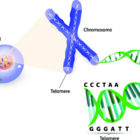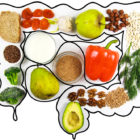Older adults aren’t aged versions of younger adults any more than children are younger versions of adults. Each stage of life functions slightly differently with different strengths and weaknesses. Menopause and aging in general is associated with changes in both our genes and in our metabolism. In fact, you don’t have to be that old.
Your metabolism first starts to slow down during your 30s, and that causes the percentage of lean muscle in your body to decrease while fat increases. During your 40s, things change even more. Your basal metabolic rate drops by 4% to 5% each decade, which makes it increasingly more important to eat healthy, control the number of calories you eat and to keep exercising.
By the time you reach your 50s, your body needs 50 fewer calories each day than you did in your 40s in order not to gain weight. That is why it is so easy for pounds to sneak up on you if you pack on the calories with large portions or waste your calories on empty ones like sodas, candy and large desserts.
Your 60s continue the same pattern with most of the added weight ending up in your abdomen. Increasing belly fat not only affects the way you look and feel; it adds to the risk of high blood pressure and diabetes. That’s why it’s really important during this decade to keep exercising. I do weight training and encourage you to as well. It both helps to fight off medical risks by burning off unwanted calories and it also keeps up your muscle strength and tone. It also helps with balance, which reduces the risk of falls. By the seventh decade, loss of muscle strength and tone and loss of bone density are common. Some of this loss is due to a decrease in dietary intake or a loss in appetite.
How do doctors determine if a person is overweight?
We use a tool called the Body Mass Index (BMI). It considers your weight and your height together. Look down the first column to find your height and then scan across to your weight. Your BMI is the number on top of that column. A BMI between 18.5 and 24.9 is the goal. A BMI ≥ 25 is considered overweight. A BMI ≥ 30 defines obesity.
Exercise: How Much is Just Right?
When you exercise, the goal is to choose a level that will cause your heart to beat at 60 to 75% of its maximum capacity. This assures a maximum cardiovascular benefit without overtaxing your heart. The desired heart rate will change with aging and your health. Always discuss what is an ideal heart rate for you with your doctor. As a simple estimate, subtract your age from 220 and multiply that times 0.65.
Until next time,
Dr. Mache Seibel, Founder of My Menopause Magazine http://bit.ly/MyMenoMag
Professor, University of Massachusetts Medical School
(617) 916-1880
PS: Find more information of this type in My Menopause Magazine, available for the iPad in the Apple Newsstand. http://bit.ly/MyMenoMag
* Please Like and share with your friends.









